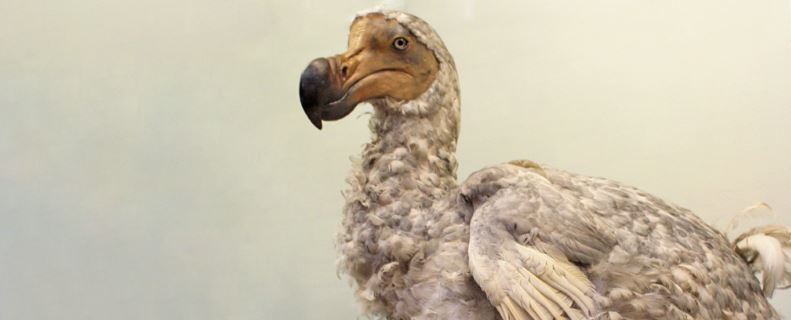


 3:41:8
3:41:8  2024-09-01
2024-09-01  1910
1910

Representations of dodos may look hilariously gormless and their name is now synonymous with the likes of 'dolt' and 'boofhead'. But it seems the dodo's situation more aptly represents victim blaming instead.
After reviewing 400 years of literature, researchers from the UK are working on setting the record straight: dodos were not slow and stupid.
"Evidence from bone specimens suggests that the Dodo's tendon which closed its toes was exceptionally powerful, analogous to climbing and running birds alive today," says University of Southampton paleobiologist Neil Gostling. "The dodo was almost certainly a very active, very fast animal."
Much of our early information on the famously extinct bird is hearsay from Dutch sailors, representations from artists, and fragmented remains. For years, their oddness combined with their rapid disappearance led to their dismissal as mythical fantasy creatures.
"More has been written about the Dodo than any other bird, yet virtually nothing is known about it in life," explains avian paleontologist Julian Hume from the Natural History Museum in the UK.
For centuries, even the number of dodo species was up for debate. Examining collections from around the UK as well as written records, University of Southampton evolutionary biologist Mark Young and colleagues have sorted through this taxonomic confusion.
Their review confirmed both the single species of dodo (Ralphus cucullatus) and its closest relative, the Rodriguez solitaire (Pezophaps solitaria), are columbids, part of the pigeon and dove family of birds, that we've long made use of for their unique intelligences.
As well as their mad skills as messenger pigeons, this group of birds has also demonstrated a sense of self and is capable of using touch screens.
"The few written accounts of live Dodos say it was a fast-moving animal that loved the forest," says Young.
This is in sharp contrast to the notion of a dimwitted 'unfit' animal that blundered into its own inevitable demise.
"These creatures were perfectly adapted to their environment, but the islands they lived on lacked mammalian predators," says Gostling. "So, when humans arrived, bringing rats, cats, and pigs, the Dodo and the Solitaire never stood a chance."
It took about 70 years for all these new inhabitants on the island of Mauritius to eat the dodos and their eggs out of existence. The last known sighting of the unique ground dove was in 1662. By 1770, the swan-sized solitaire also met the same fate.
The same scenario has since been playing out over and over again. From the highly intelligent, endangered kea parrot, to the word's rarest insects, and the extinct thylacine, many animals do not fare well when confronted by humans and the invasive species we bring with us – a process now contributing to Earth's sixth mass extinction.
Around 600 species are currently threatened by non-native predators humans have introduced.
"The Dodo was the first living thing that was recorded as being present and then disappeared," says Gostling.
"Before this, it hadn't been thought possible for human beings to influence God's creation in such a way."
Such assumptions have allowed us to inflict untold damage on our living world. When we wiped out the dodo we didn't understand what we were doing, but we sure as heck do now. We now know we even have enough collective power to alter the physical properties of our planet.
Young and team's review is just the beginning of a wider project to learn more about these lost species.
"We are not just looking back in time – our research could help save today's endangered birds too," says University of Southampton biomechanical engineer Markus Heller.
Reality Of Islam |
|

A 1.98-squa

Researchers

A well-know

Scientists
 9:3:43
9:3:43
 2018-11-05
2018-11-05
10 benefits of Marriage in Islam
 7:5:22
7:5:22
 2019-04-08
2019-04-08
benefits of reciting surat yunus, hud &
 9:45:7
9:45:7
 2018-12-24
2018-12-24
advantages & disadvantages of divorce
 11:35:12
11:35:12
 2018-06-10
2018-06-10
 6:0:51
6:0:51
 2018-10-16
2018-10-16
allah will not answer all your prayers
 6:56:28
6:56:28
 2022-01-01
2022-01-01
 2:33:4
2:33:4
 2023-02-15
2023-02-15
 6:0:8
6:0:8
 2023-03-19
2023-03-19
 2:13:43
2:13:43
 2022-05-27
2022-05-27
 8:21:9
8:21:9
 2018-06-21
2018-06-21
bahlool & the throne of haroun rashid
 8:20:35
8:20:35
 2018-06-21
2018-06-21
 6:14:17
6:14:17
 2018-06-21
2018-06-21
 5:41:46
5:41:46
 2023-03-18
2023-03-18
| LATEST |